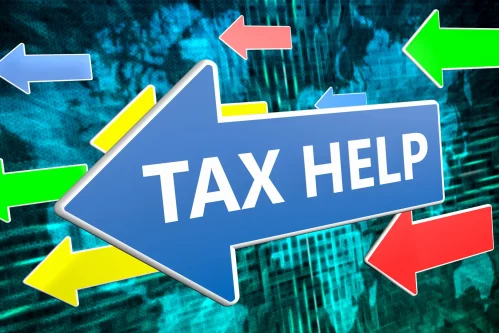Can tax debts be included in bankruptcy

Tax debts owed to HMRC are included and written off if you go bankrupt. This is one of the major advantages of bankruptcy over alternative debt solutions such as a debt management plan.
Included in this article:
- Are HMRC tax debts written off if you go bankrupt?
- Are tax credit overpayments included?
- Does bankruptcy last longer if you have tax debt?
Want to speak to a person? Give us a call (0800 044 3194) or click here to complete the form below and we’ll call you back
Are HMRC tax debts written off if you go bankrupt?
Personal tax arrears and business tax debts (if you are self employed) are all included if you go bankrupt. They are written off in the same way as any bank or credit card debt.
Unlike other debt solutions such as a debt management plan or IVA, HMRC can’t refuse to include debt owed to them. In fact, they really have no say. If you have made your mind up to go bankrupt, no-one can stop you. Once your application has been submitted, it will almost certainly be accepted as long as you have living in the UK for the past 6 months.
If you have to submit tax returns, you should continue to do so after you go bankrupt. If you subsequently submit any returns which show tax owing up the date you went bankrupt, this debt is included retrospectively. The fact the return is submitted after you went bankrupt is irrelevant.
Council tax arrears are also written off if you go bankrupt. In most circumstances, you continue to make ongoing payments at your normal rate.
Are tax credit overpayments included?
Tax credit overpayments owed to HMRC are included in bankruptcy. This was confirmed in 2013 by the Supreme Court in a legal case known as “Re Nortel; Re Lehman 2013”.
The Court confirmed the terms of Section 382 of the Insolvency Act 1986 which state that bankruptcy includes all liabilities that arise from a statutory or contractual relationship that existed before the date the bankruptcy started.
Given this ruling and provided the overpayment was not due to a fraudulent claim, debts due to overpaid tax credits are included. They can no longer be collected once you are discharged.
If your current benefits payments are being reduced to repay past overpayments, this must stop. You should be paid your full benefit entitlement from the start date of your bankruptcy.
Statute and case law both confirm that tax credit overpayments are included in bankruptcy and can’t be collected after discharge.
Does bankruptcy last longer if you have tax debt?
In most cases bankruptcy lasts for 1 year (12 months). After this time, your bankruptcy ends. You are discharged from your debts. Put simply, this means your debts are written off and you no longer have to pay them.
However, if you owe a significant amount to HMRC, particularly if you failed to complete tax returns over a number of years when you should have done, then the length of your bankruptcy might be extended.
You will still be discharged after 1 year. However, the official receiver can issue you with a BRU (Bankruptcy Restrictions Undertaking).
A BRU extends some of the restrictions you are under as a bankrupt person. For example, if you have a BRU you can’t be a director of a limited company However, you can still be self employed. In addition if you get a windfall, it is yours to keep.
The reality for most people who get a BRU is that it has little or no effect their day to day lives.
Need more information about your tax debts and whether bankruptcy might help? Give us a call (0800 044 3194) or complete the form for free no obligation advice.
Hi
I have a historic self assessment debt. HMRC have visited me, I contacted Step Change charity for their advice. I have zero spare money after bills are paid each month. Step Change said I can’t go bankrupt as it won’t clear HMRC debt. What do I do as so worried. Sue
Hi Sue
I can confirm Step Change have given you incorrect advice.
As highlighted in the article above, HMRC self assessment debt is certainly included in bankruptcy. If you go bankrupt, I assure you, your debt with HMRC will be written off in exactly the same way as any other unsecured debt. Given you have no surplus income, it sounds like it might be an ideal solution for you.
If you would like to chat through the option of bankruptcy and how it will affect you please give me a call (0800 044 3194). The advice is free and without obligation.